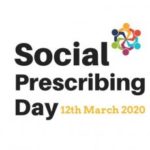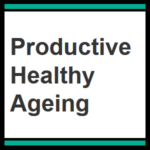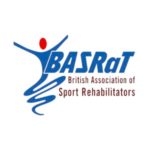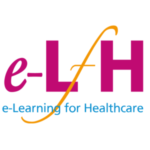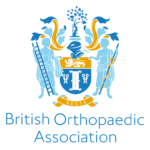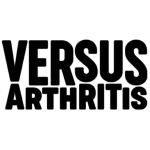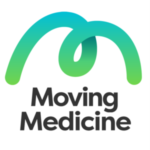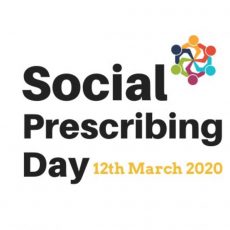 Mr Jones is 72 today. A few years ago, he would have celebrated with friends in the pub, but now the pain in his back makes is hard to go out and he gets tired quickly. So, he’s at home watching TV while his wife cooks a meal. He spends a lot of time watching TV and his back seems to be getting worse, but his GP says there is nothing she can do for him but being more active will help.…
Mr Jones is 72 today. A few years ago, he would have celebrated with friends in the pub, but now the pain in his back makes is hard to go out and he gets tired quickly. So, he’s at home watching TV while his wife cooks a meal. He spends a lot of time watching TV and his back seems to be getting worse, but his GP says there is nothing she can do for him but being more active will help.…
Read more of this article
Category: Resources
New how-to guide: non face-to-face clinics
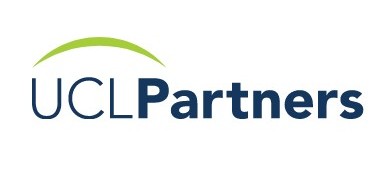 The NHS Long Term Plan includes commitments to remove the need for up to a third of outpatient appointments over the next five years, saving patients 30 million trips to hospital and the NHS more than £1 billion a year in new expenditure, and to continue to provide patients with a wide choice of options for quick elective care. ARMA hosted a webinar recently on this in relation to rheumatology services.
The NHS Long Term Plan includes commitments to remove the need for up to a third of outpatient appointments over the next five years, saving patients 30 million trips to hospital and the NHS more than £1 billion a year in new expenditure, and to continue to provide patients with a wide choice of options for quick elective care. ARMA hosted a webinar recently on this in relation to rheumatology services.
This new website from UCL Partners includes a range of resources aimed at supporting colleagues / partners in the planning and implementation of non face-to-face models of care.…
Read more of this article
Latest Productive Healthy Ageing Profile
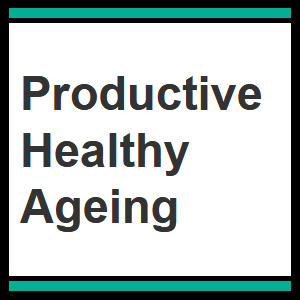
Public Health England has published the Productive Healthy Ageing Profile data update for November 2019.
This tool provides data on a wide range of topics relevant to healthy ageing. Indicators can be examined at local, regional or national level.
The aim of this tool is to support PHE productive healthy ageing policy and inform public health leads and the wider public health system about relevant key issues.
Many indicators are also now available for the latest local authority and clinical commissioning group geographies.
Quality in osteopathic practice report
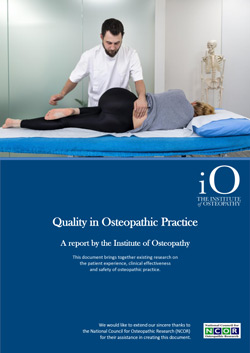 The Quality in Osteopathic Practice report brings together existing research around the patient experience with research on clinical effectiveness and the safety of osteopathic practice.
The Quality in Osteopathic Practice report brings together existing research around the patient experience with research on clinical effectiveness and the safety of osteopathic practice.
Full of useful statistics and information, the report is relevant to anyone who has an interest in finding out more about osteopathic practice and the evidence that there is available, whether as a patient or a member of the wider general public, a private or NHS commissioner of service or other colleagues in healthcare.
Read the Quality in Osteopathic Practice report from the Institute of Osteopathy.
BASRAT Sport Rehabilitation brought to life
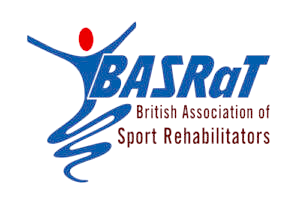 BASRaT registrar Ollie Coburn has produced a short video illustrating his profession.
BASRaT registrar Ollie Coburn has produced a short video illustrating his profession.
Sport Rehabilitators aid people with musculoskeletal pain, injury or illness. They help people to maintain their health and fitness, recover from and prevent injury and reduce pain using exercise, movement and therapy.
The video “Sport Rehabilitation brought to life in 38 seconds!” can be viewed here.
Sport Rehabilitation brought to life in 38 seconds!
Produced by our fabulous Registrar Ollie Coburn. #wearegsr pic.twitter.com/ZkALxIqJRU
— BASRaT (@BASRaTorg) November 18, 2019
SOMM Musculoskeletal core capabilities framework
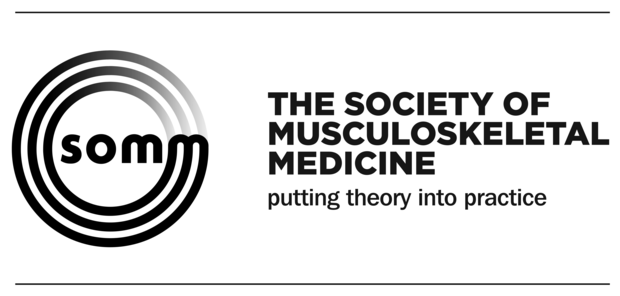 The Society of Musculoskeletal Medicine (SOMM) has produced a short paper mapping capabilities within the published ‘Musculoskeletal core capabilities framework for first point of contact practitioners’* to the Society’s course provision.
The Society of Musculoskeletal Medicine (SOMM) has produced a short paper mapping capabilities within the published ‘Musculoskeletal core capabilities framework for first point of contact practitioners’* to the Society’s course provision.
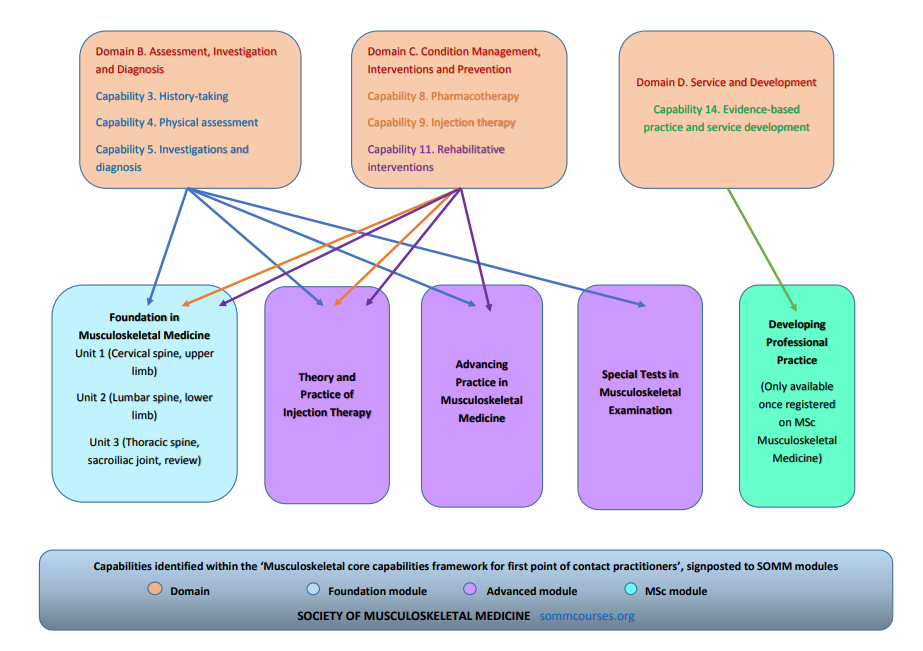 The domains identified within the framework provide categories for the capabilities that underpin first contact practice. Practitioners can be signposted to appropriate modules to facilitate the development of the advanced skills required for their MSK First Contact Practitioner (FCP) role. The Society’s programme of courses already accommodates key capabilities that learners across a range of health professions need, to be able to develop as FCPs.…
The domains identified within the framework provide categories for the capabilities that underpin first contact practice. Practitioners can be signposted to appropriate modules to facilitate the development of the advanced skills required for their MSK First Contact Practitioner (FCP) role. The Society’s programme of courses already accommodates key capabilities that learners across a range of health professions need, to be able to develop as FCPs.…
Read more of this article
Physical activity e-learning programme
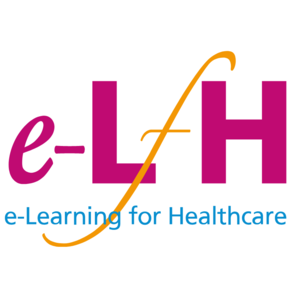 Health Education England e-Learning for Healthcare (HEE e-LfH) has worked with Public Health England and Sport England to launch a new physical activity e-learning programme to help healthcare professionals to champion physical activity with patients.
Health Education England e-Learning for Healthcare (HEE e-LfH) has worked with Public Health England and Sport England to launch a new physical activity e-learning programme to help healthcare professionals to champion physical activity with patients.
The e-learning programme, which is aimed at GPs, nurses and other healthcare professionals, will familiarise the learner with the UK Chief Medical Officers’ Physical Activity guidelines.
This e-learning course prepares GPs, nurses and other healthcare professionals to champion the benefits of physical activity with their patients and, in doing so, help prevent and manage a range of common physical and mental health conditions.…
Read more of this article
New BOA Guidance on Fracture Related Infections
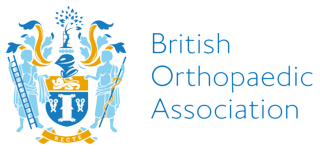 The BOA is pleased to launch its newest BOA Standard (BOAST) on ‘Fracture Related Infections’ (FRI).
The BOA is pleased to launch its newest BOA Standard (BOAST) on ‘Fracture Related Infections’ (FRI).
The BOA Trauma Group has produced this document, which is supported by the Orthopaedic Trauma Society and the British Limb Reconstruction Society.
It is available online here.
MSK Pearls and Red Whale events
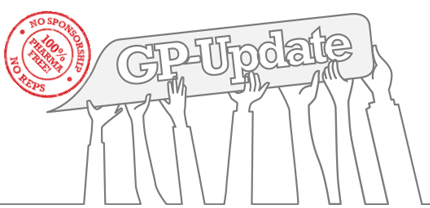 Versus Arthritis and Red Whale (the GP-Update course providers) are working together to bring healthcare professionals a fantastic new range of free musculoskeletal education, specifically designed to help improve your confidence and skills in supporting people with MSK conditions and to gain valuable CPD points.
Versus Arthritis and Red Whale (the GP-Update course providers) are working together to bring healthcare professionals a fantastic new range of free musculoskeletal education, specifically designed to help improve your confidence and skills in supporting people with MSK conditions and to gain valuable CPD points.
Coming soon:
- Specially curated MSK Pearls that cut through the clutter and focus on the important issues you shouldn’t miss, as well as the small things that might make your lives easier and your patients’ lives better.
Read more of this article
Have you visited Moving Medicine yet?
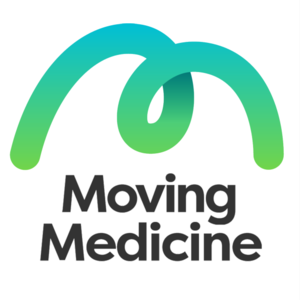 Last October, Moving Medicine was launched by the Honourable Matt Hancock, Secretary of State for Health and Social Care. The free, evidence-based resources, available at movingmedicine.ac.uk support high quality conversations on physical activity across a broad range of chronic diseases including musculoskeletal pain, inflammatory rheumatic conditions and primary prevention, to mention a few.
Last October, Moving Medicine was launched by the Honourable Matt Hancock, Secretary of State for Health and Social Care. The free, evidence-based resources, available at movingmedicine.ac.uk support high quality conversations on physical activity across a broad range of chronic diseases including musculoskeletal pain, inflammatory rheumatic conditions and primary prevention, to mention a few.
The resources are all developed with experts, healthcare professionals and patients, and are endorsed by professional bodies and charities, including ARMA. Whether you have 1 minute, 5 minutes, or more minutes to speak with patients about physical activity, Moving Medicine will help support this. …
Read more of this article

